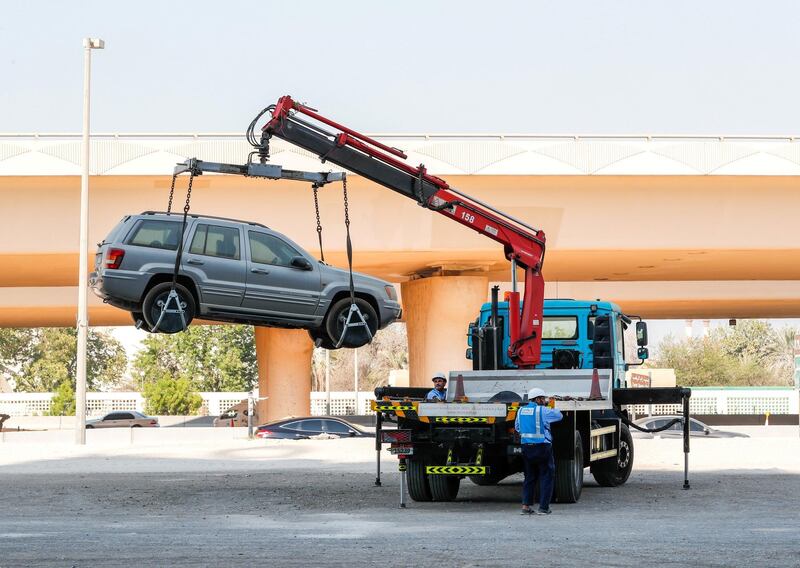This is a tale of two cities, and my recent entanglement with the law in each. Nothing dramatic, but it has prompted me to question whether common sense could have sparked a different outcome.
Both incidents involved parking, one in Abu Dhabi and one in Dubai. In Abu Dhabi, I parked on a patch of open sand opposite a building I was visiting. Other cars were also parked there and I had previously used the same spot. Convenient, off the road and causing no problems. Since the building I was visiting has insufficient parking of its own, it made sense to use the sand.
Mawaqif, Abu Dhabi's parking body, decided some months ago to erect a small sign saying that it is now against the law to park on the sand there. I didn't see the sign, didn't realise and got the fine, which I paid.
After a bit of an awkward start, the rolling-out of the new system overseen by Mawaqif has made major improvements to parking in Abu Dhabi. There is still scope to sort a few things out, but, by and large, good progress has been made.
I completely fail to understand, however, why empty patches of sand cannot be used for parking until they are fully developed. The rule seems a little redundant and is not always applied with the same meticulousness, depending on where you park. On other sand patches in the city – including one I used without any problems outside a police station – dozens of cars are parked but no tickets are issued, despite the same Mawaqif sign being present.
The incident in Dubai involves a more complex tale.
Four months ago, I was surprised to receive notification of a Dh1,000 penalty from Dubai traffic police for parking in a downtown area one Saturday afternoon. On that day, I had been in my office in Abu Dhabi, with my car parked outside.
After emails back and forth and unsuccessful attempts to navigate the online system to appeal against the penalty, it became apparent that a visit to Dubai was required. My wife and I spent several hours going from one police station to another, eventually arriving at the one where the policeman who had issued the ticket was stationed. He was not on duty but a helpful sergeant helped us to fill in a form to appeal against the penalty. There must have been some mistake in writing down my car number, we said. If a photograph of the offending vehicle was examined, it would be evident that it was not mine.
We were told, though, that no photographs are taken in such cases. I would simply have to lodge the appeal and go to court.
Ten weeks later, I received notification of the date of the court hearing. Another trip to Dubai would be required and I had an important meeting in Abu Dhabi that morning. Despite numerous phone calls, however, we couldn’t find anyone in Dubai Police who could give us an email address to which we could write requesting a delay in the hearing. I thought of simply paying the fine, rather than going to the court, just to get rid of the problem. That seemed a bit risky though.
So I went. The judge asked me whether I could prove that my car and I had been in Abu Dhabi. I answered that it was, surely, for the authorities to prove my guilt, rather than for me to prove my innocence. I offered to pay a sum equivalent to the penalty to any nominated charity if any evidence was produced of my car being anywhere in Dubai on the day in question. In the event, after a long wait, I was informed that the ticket was cancelled.
Others in the courtroom that day told me of similar incidents. One couple had been in Indonesia when their car received a penalty. Another person had been in Bahrain.
I assume that in my case, the individual who recorded the alleged violation made a mistake in entering the car number on the system. That might explain other cases, too.
Perhaps there could be a rule that in parking cases where no paper ticket is issued and placed on a car’s windscreen, a photograph must be taken to provide evidence of the violation. That would resolve a lot of these disputes and save a lot of time.
Such a change of procedures could be implemented easily and help make parking in the city fairer for everyone.
Peter Hellyer is a consultant specialising in the UAE’s history and culture





